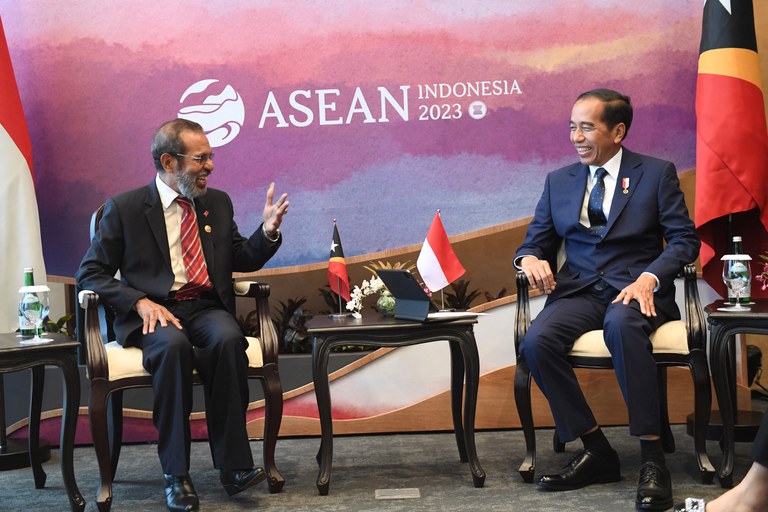HRW said it reviewed photos and videos of the victims and the site, and concluded that the initial strike was conducted with a large, air-dropped “enhanced-blast” type munition, which is often called “thermobaric” or a “vapor-cloud explosive.”
“The Myanmar military’s use of a weapon designed to cause maximum deaths on an area crowded with civilians shows flagrant disregard for human life,” said Elaine Pearson, HRW Asia director. “Foreign governments need to cut off the junta’s funding, arms and jet fuel to deter further atrocities.”
The attack targeted a gathering of about 300 residents from Kantbalu township who were opening an opposition-controlled administrative office. The military claimed it was aiming at members of an anti-junta militia and that the casualties were caused by explosions of stored explosives and landmines.
‘Quiet diplomacy strategy has not worked’
ASEAN has been under pressure to take a more active role in resolving the crisis in Myanmar that is seen as threatening regional stability and security.
In April 2021, ASEAN leaders held a special summit on Myanmar and issued a five-point consensus. It included calls for an immediate cessation of violence, constructive dialogue among all parties, a special envoy to facilitate mediation and humanitarian assistance.
The consensus has not been implemented because of the junta’s lack of cooperation and continued repression.
The junta also rejected calls for dialogue with the National Unity Government (NUG), a shadow government formed by ousted lawmakers and anti-coup activists.
Retno said last week that she had met with stakeholders from Myanmar and other countries that have leverage over the junta as part of what she described as “non-megaphone diplomacy.”
But rights activists and some observers accused ASEAN of being too lenient with the junta.
“ASEAN’s quiet diplomacy strategy has not worked. We do not see any reduction of violence there, but rather more civilians have been killed in air strikes,” Debbie Stothard, coordinator of Alternative ASEAN Network on Burma (ALTSEAN), said in an online discussion last week.
Sidharto Suryodipuro, director general of ASEAN cooperation at Indonesia’s foreign ministry, defended the lack of publicity, saying some issues were too sensitive to be revealed to the public.
“If everything is opened up, there will be no successful negotiations,” he said last week.

On Monday, Indonesian President Joko “Jokowi” Widodo condemned an attack on a diplomatic convoy delivering humanitarian relief to displaced people in Myanmar the previous day. The convoy included members of the ASEAN disaster management agency and diplomats from Indonesia and Singapore.
Jokowi said the attack would not deter Indonesia and ASEAN from helping Myanmar restore democracy and peace.
“Stop the violence because it will only hurt civilians and benefit no one. Let us sit together and start a dialogue,” the president said.
This week’s ASEAN summit is also expected to address other issues such as the South China Sea disputes and maritime security as well as the promotion of human rights and democracy in the region.
Indonesia expects the summit to conclude with initiatives on human trafficking, migrant workers, fisheries, health, rural development, electric vehicles and payment connectivity.
Officials also hope the summit will showcase Labuan Bajo as a premium tourism destination. The town is known for its natural beauty and proximity to Komodo National Park, home to the endangered Komodo dragons.
BenarNews is an RFA-affiliated news service.


